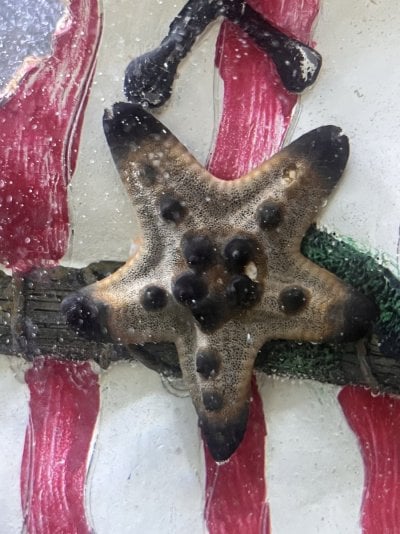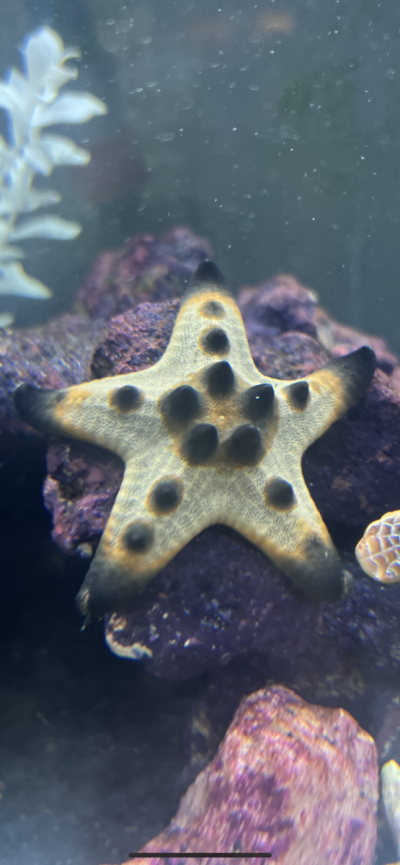My chocolate chip starfish was added to my tank 2 weeks ago. I posted photo of him upon entering my tank & a picture of him today. He’s been losing weight & then overnight developed those white/ rot spots on him. Online I read that it could be because he’s stressed? I’ve noticed he doesn’t move much and stays in place up high generally, and doesn’t seem to be eating much. I just fed him some bigger krill and placed it underneath him and he seems to be eating it. My tank is a year old & has been stable, my Salinity is at a 1.025, any ideas how to save this guy? Thank you in advanced!

















